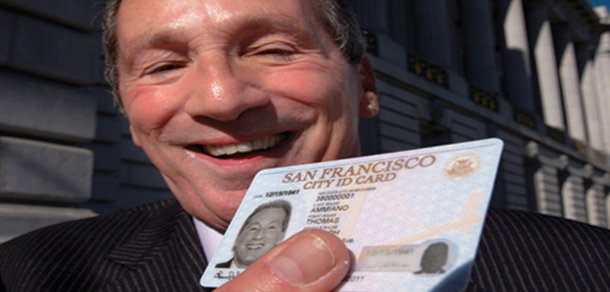Cities start issuing municipal ID cards
Credentials enable and control access to local services
21 December, 2015
category: Financial, Government
A growing number of cities are making it possible for residents to prove their identity to local agencies and institutions without having to present a driver license.
With the adoption of municipal ID programs, local and state governments are issuing ID cards to residents – mostly undocumented individuals – who otherwise wouldn’t be able to obtain a traditional ID.
Without documentation, immigrants, homeless and unbanked individuals lack the necessary forms of identification needed to open a bank account, check in to a health clinic or even visit a food bank.
Cities including Los Angeles, San Francisco and more recently New York have been issuing municipal ID cards to qualifying residents. Others including Nashville and Charlotte, N.C. are exploring the possibility.
Residents can use the ID cards to obtain city services, identify themselves to local authorities and enter city buildings such as schools. In some cities, the IDs enable cardholders to receive museum memberships and discounts at local businesses.
Municipal IDs have been around since 2007, when the city of New Haven, Conn., rolled out the very first program in response to attacks on the city’s immigrant and unbanked populations.
Immigrants were being victimized and targeted as “walking ATMs,” since they were less likely to have bank accounts and often carried large amounts of cash as a result. The last straw came for the city in 2006 with the murder of Manuel Santiago, a 36-year-old Mexican immigrant who was robbed and stabbed to death after cashing his paycheck.
“It’s a public safety issue for cities,” says Paule Cruz Takash, director for business development and financial inclusion for SF Global LLC, an Oakland, Calif.-based company that administers municipal ID programs. “When criminals know that people get paid on a certain day, and that they don’t bank or are not able to bank, it means that these people are targets.”
Payments plus identity
Following New Haven’s ID card rollout, other local and state governments have expanded upon the concept.
In the San Francisco Bay area, the cities of Oakland and Richmond, Calif., launched municipal ID programs and rolled in payments card functionality. While ID-only cards are available in these cities, qualifying residents can obtain ID cards with a prepaid debit component.
LaShonda White, senior management analyst for the city of Richmond, Calif., says that the city adopted its ID card program to improve public safety, increase civic participation and support local commerce. “All of those things are possible because it is a prepaid debit card and an ID card,” she says.
Oakland has been offering municipal IDs for more than two years, while Richmond starting enrolling cardholders a year ago. SF Global contracted with both cities to administer the card program, and the company is in negotiations to bring its combined payment and ID card to undisclosed additional cities.
SF Global claims to have invented the first hybrid municipal ID/prepaid debit card. The company incubated its card out of its research center at UCLA and – in line with its self-described social mission – developed the ID program in response to mounting issues that plagued undocumented residents, including immigrants, homeless people, senior citizens and individuals released from prison.
“For populations whose legal status is undetermined here in the United States, we knew this was an issue for them in terms of being able to get banked,” says Cruz Takash. “They would not be able to provide the required ID to open a bank account.”
Residents who are 18 and older can obtain an ID-only card, and those who fulfill eligibility requirements can apply for a MasterCard-branded prepaid debit ID card. Residents can apply for the card at a church space that the city is using as an intake center for enrollment.
To obtain an ID, residents still need to show qualifying documents to enroll in the program. Basic cardholder information is stored in a database so that various city departments can access it and provide services to cardholders.
Right now the ID is a magnetic stripe card with built-in security features, although SF Global plans to switch to chip cards for the next round of IDs issued.
Cruz Takash says SF Global anticipates enrolling about 10% of the population of each city it serves, based on poverty levels and racial and immigrant makeup. The company has issued about 6,000 ID cards in Oakland, and about 450 in Richmond. It costs $15 for anyone ages 18 to 65 to obtain a card, and $10 for anyone over 65.
Although it could begin charging any other cities it serves in the future, SF Global is not charging a contract fee to Oakland or Richmond to provide the service since those cities were embracing a new program.
City officials in Richmond would like to see the card help support local commerce in the future. They envision the card providing benefits to residents who use it to shop at local businesses.
“I think that would make the card more attractive,” White says.
SF Global has been training the city’s police department on what the cards look like and how to read them. The contractor also has been working to get the state motor vehicles department to accept Richmond and Oakland municipal ID cards as a form of identification for people to get driver licenses.
“As long as the institutions are accepting of the process you go through to verify identity, I think the door will be open as to what institutions are going to accept this as a form of primary or even secondary identification,” White says.




